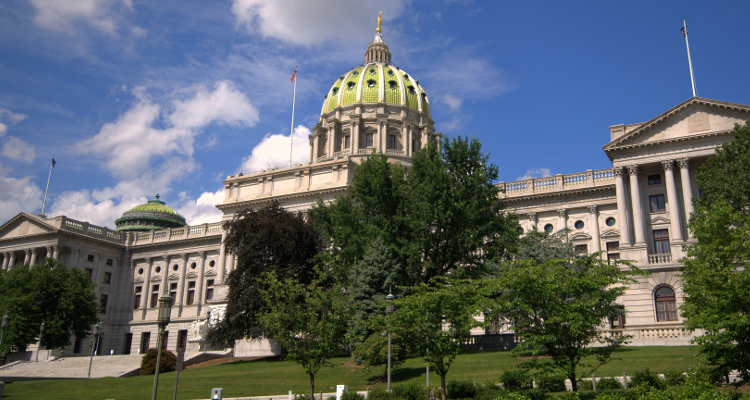In Pennsylvania, legislators have adjourned for the remainder of the year without approving controversial legislation that would have legalized online gambling and reinstated a local share tax on casino revenues.
A measure passed in 2006 mandated that the eastern state’s twelve casinos sacrificed 2% of their annual gross slot revenues to the townships in which they are located. The legislation, which was contained in Senate Bill 862, additionally included a provision that mandated that this amount must be at least $10 million with operators required to make up any difference.
However, Mount Airy Casino Resort objected in court as its 1,850 slots pulled in just $139.1 million last year, which meant that it was required to add $7.22 million onto its 2% tax of $2.78 million, and its argument was subsequently upheld last month by the Pennsylvania Supreme Court.
According to a report from The Philadelphia Inquirer newspaper, legislators were then given 120 days to come up with a solution and the Republican-controlled Pennsylvania State Senate consequently passed a measure to temporarily reinstate payments from casinos to their host communities. But, in making its way through the Pennsylvania House Of Representatives, a provision was added that would have authorized online gambling and regulated daily fantasy sports.
The amended plan with its new provisions, which was approved in the Republican-led lower house by a vote of 108-to-71, was then rejected by legislators in the Pennsylvania State Senate on the final scheduled voting day of the two-year session to leave the state without a solution to an anticipated $100 million shortfall in next year’s budget.
“We did what we did on gaming and I think that’s all we plan on doing for the rest of the year,” Drew Crompton, a lawyer who works on behalf of Republicans in the Pennsylvania State Senate, told The Philadelphia Inquirer.
The Philadelphia Inquirer reported that legislators would have to begin the entire process anew should they fail to pass any fix the by November 30 while Crompton told the newspaper that the upper house was still prepared to address the gambling revenue issue but not until the next session began in January.
“We hope that come next year we’ll have some renewed energy in order to find the $100 million that we still know is pledged for the 2016 to 2017 year,” said Crompton.
Both legislative houses are due to reconvene in Harrisburg next month for leadership elections although no news has been forthcoming on whether members intend to look at the unfinished legislation. Pennsylvania State Senator Rich Alloway, an advocate of the proposed measure, used Twitter to assert that he would be “back in 2017” with “renewed vigor”.
Dave Reed, Majority Leader of the Pennsylvania House Of Representatives, defended his body’s actions and declared that amending the proposed legislation had been critical to resolving the state budget’s gambling revenue plank.
“We made the decision this morning that is in line with what we’ve been saying for over a month that the [Pennsylvania House Of Representatives] had support for a gaming bill that fixed the local share issue and got us to the budgetary commitment of $100 million,” said Reed.



